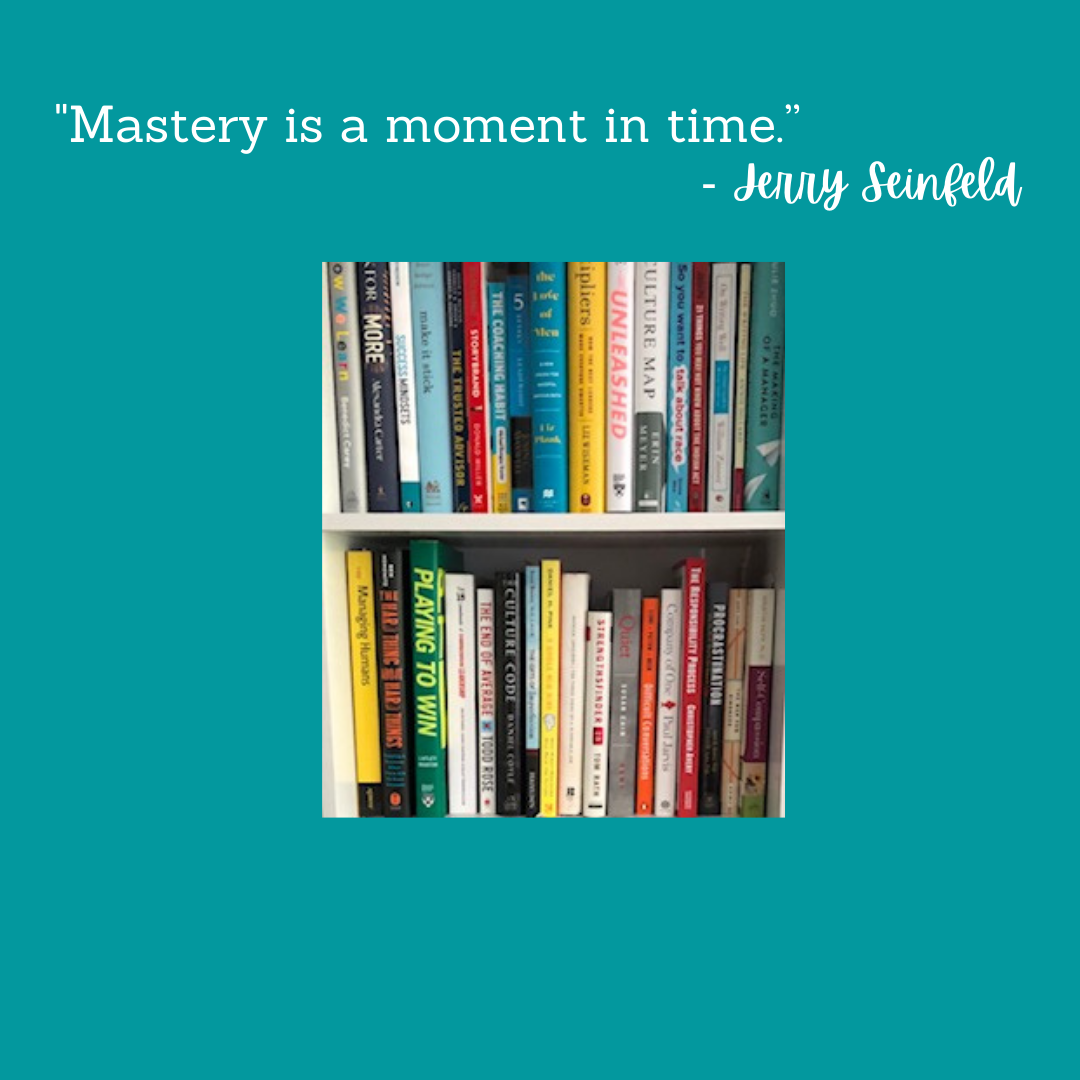
One of the best parts of being self-employed is having the space to think about how I work, how I want to work, who I want to be at work, and how I want to professionally learn and grow. Lately, I have been thinking about my professional development and what it looks like outside of the context of a corporate environment.
I don’t have a professional development plan. Having a mandated corporate professional development plan never sat well with me. I realize this might sound controversial since I was in HR, and professional development generally falls under the HR umbrella. But, creating a plan always made learning feel transactional, and for someone else (i.e., my employer) rather than for myself. Letting my corporate professional development plan drive my learning behaviours kept my view of learning narrow and never allowed me to experience learning as a journey. And even though I intellectually knew that learning was my responsibility, there was something about being in a corporate environment that trapped my thinking.
So, rather than creating a professional development plan, I am choosing to accept the fluid and organic nature of learning. Sometimes I anchor my learning to a problem that I want to solve, a skill that I want to get better at, or a subject that I want to deepen my knowledge in. But mostly, my learning starts with curiosity and interest. And the best part about this is that I am learning more deeply than I ever was before.
I’m intentionally examining and internalizing the content that I’m consuming. Books and podcasts are important learning sources for me. But a few years ago, I realized that all of my reading and listening was more about consuming than it was about learning. I’d read a book or listen to a podcast and move on to the next before thinking about how I could apply the content or internalize it. Then, in 2018, we started our podcast, Don’t Be a Jerk at Work and I saw the power that energizing conversations and collaboration have on my learning. Having specific episode topics forced me to think about what I wanted to say and synthesize my knowledge and experience in ways that reinforced my learning. And of course, I also learn from the comments and questions of my wise pals, Tara and Sarah.
That said, I am still an introvert at heart and when I don’t want to learn out loud, I turn to my writing. Whether it is my blog or my book nook, through all of my drafts, edits, and the simmering of ideas that happen between edits, the end result for me is clarity in my thinking and ultimately, my own learning.
I look for ways to practice. My best learning comes from doing, so I try to find ways to practice and bring my learning and skills development to life. Choosing to focus my learning energy on doing — logging those 10,000 hours — is how I get comfortable with new skills or the new application of skills. Most of the skills that I want to keep fresh or work on are around listening, asking powerful questions, and making observations, so I try to find the places where I will most likely use those skills. Every time I coach, I take a few minutes at the beginning and end of each session to think about the skills I want to bring forward. I have regular catch-up meetings with my coach friends and these end up being informal coaching sessions. And I’ve created two learning groups that I call The Lab, where I can practice my group facilitation skills while participating in engaging learning conversations.
I’m learning to trust myself. One learning trap that I sometimes fall into is thinking about my learning as “improving on a weakness.” There is something that feels outdated about using my perceived weaknesses as a starting point for learning. Whenever I was asked to contemplate that question, it made me think about all of the ways I was deficient, doing something wrong, or not qualified. It wasn’t motivating and fed into my self-limiting beliefs. It stopped me before I could start. Maybe it is just semantics, but it feels better (and less of a personal attack) to lead with questions like… What behaviours would I like to show more often? What behaviours would I like to neutralize? What is important to me about making this change? What would I like to be different?
It’s easier to self-assess my learning if I’ve identified something that I want to work on. But most of my learning is driven by interest and curiosity and that has no obvious learning outcome. In general, I know that I’m learning when concepts and ideas feel like they are my own, when hard things start to feel less hard, and when I ask better questions. Without regular “feedback,” I need to trust myself to notice what I could be better at, find the learning, practice, and self-evaluate. To that end, I am in a constant feedback loop of doing + reflecting. The practice I mentioned above is great but it really only becomes learning if I take the time to reflect on that practice.
Learning is something that I want to do, not something that I have to do. I see myself as a learner so I regularly practice my learning habits. I choose to spend time reading, writing, and participating in learning conversations. At the same time, I won’t force it. If I don’t have the time or energy, I accept that and I don’t feel guilty about taking a break. That is possibly the best learning of all.
How do you learn best? What are your learning habits?